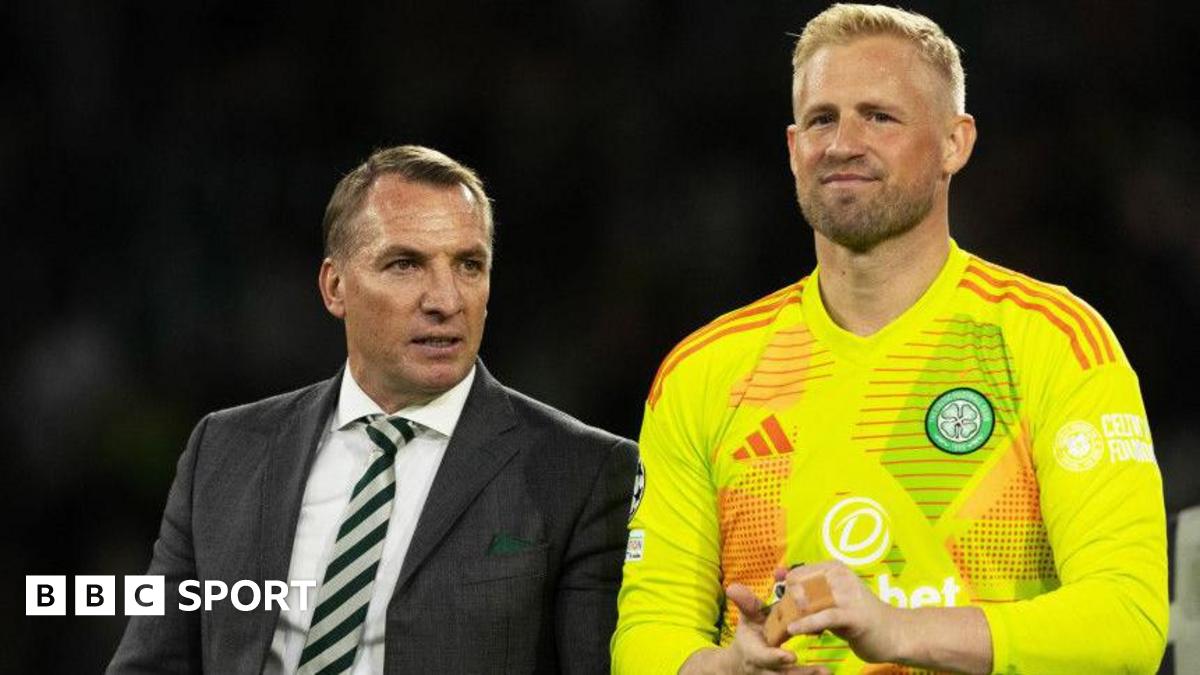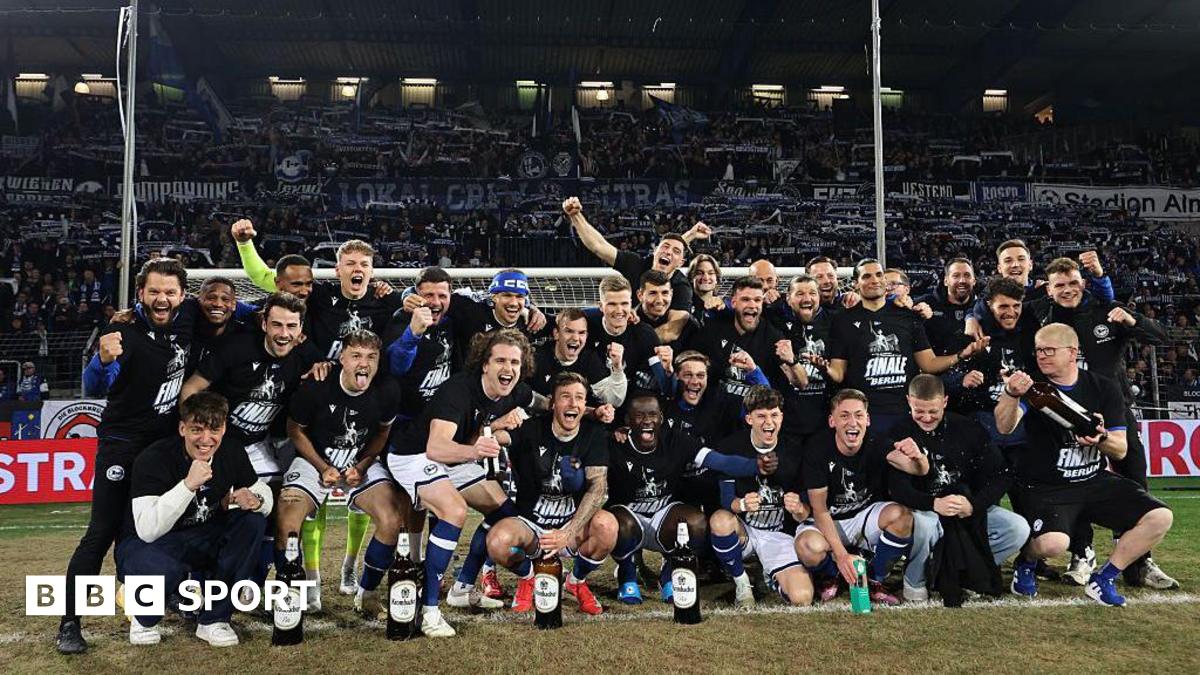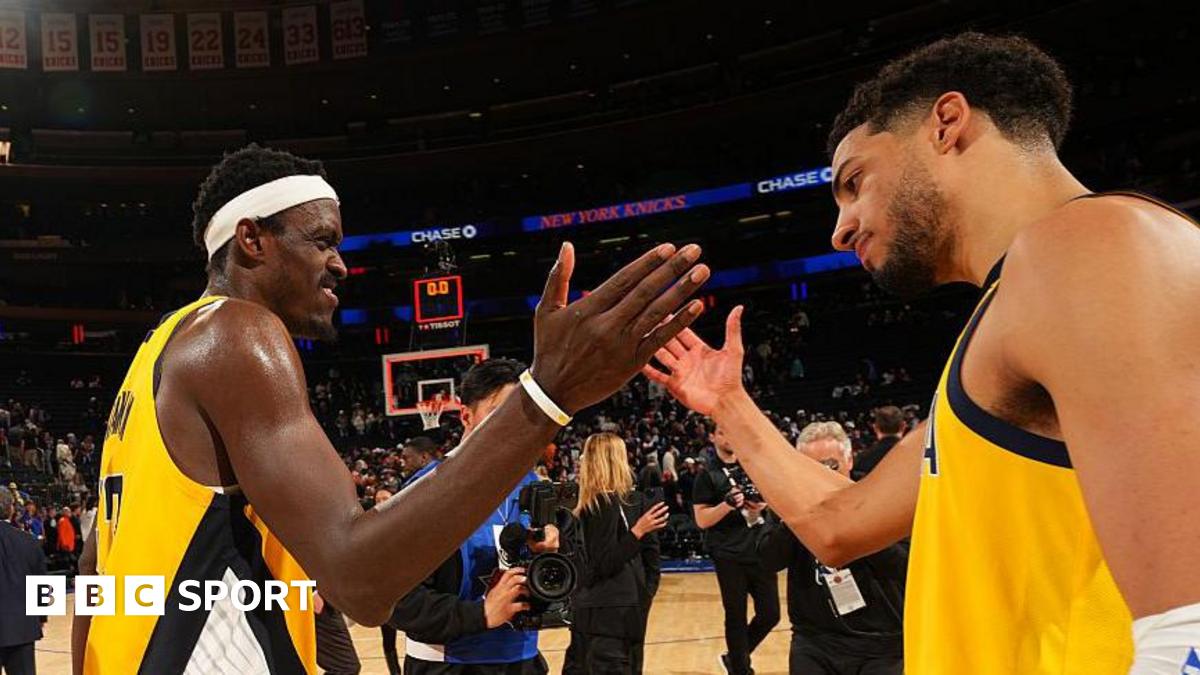ARTICLE AD BOX
Red as far as the eye can see, the air filled with smoke and song, every step closer to Anfield another assault on the senses.
Liverpool fans are gathering to watch the final game of the season, at the end of which their title-winning team will lift the Premier League trophy on what promises to be a day of celebrations.
While swathes of supporters make their way across Stanley Park, those approaching from the opposite direction up Oakfield Road might spot a sign which has been sellotaped to the front of a boarded-up house about 100 metres from the ground.
On it are the words: "MATE OR TRAITOR. Take Ya Pick, Trent." It is aimed at Trent Alexander-Arnold.
A Scouser, Alexander-Arnold has been with Liverpool since the age of six and has won every trophy imaginable with them.
Now 26, he is preparing to say goodbye to join Real Madrid, arguably the biggest club in world football. On what is sure to be an emotional afternoon, there are likely to be cheers, tears - and boos.
Was it always destined to be this way? It's complicated.
Where have all the local players gone?
This is about far more than just a club losing their star player, a right-back considered by some to be one of the most naturally gifted English footballers of his generation.
This is about identity.
"Because there is a general sense of detachment in football now, it's stories like Trent's – at least before this season – that you do cling on to," Josh Sexton, from The Anfield Wrap podcast, told BBC Sport.
"You feel like that's something you can find relatable and something you can hang your hat on. It's people like Trent who you look at and think 'I am like you' in some ways.
"Even in the behemoth that is global football now, local players like him almost make it seem like it's a grounded experience."
But the number of local players is dwindling:
With one round of games to go, 191 English footballers have played in the Premier League in 2024-25 - down from 379 in 1992-93.
BBC Sport research has found that Alexander-Arnold is one of only 28 local players - born within 10 miles of their club's stadium - across the entire top flight to have made 10 or more league appearances this season. That's from a pool of 559 players in total to have appeared at least once.
Four teams - Bournemouth, Nottingham Forest, Southampton and Wolves - haven't given a single minute of league playing time to a local player in 2024-25.
In total, 14 local players have made their debuts for Premier League clubs this season.
'A residue of the old order is peculiarly precious'
The sense of "detachment" Sexton talks about doesn't just come from the influx of foreign players, but from the wider globalisation - and commercialisation - of the game.
Only five of the 20 Premier League clubs are now owned by English people or companies - more are owned by Americans - while just two top-flight sides are currently managed by Englishmen.
Football is a sport transformed since the creation of the Premier League in the early 1990s.
Yet, according to sociologist and author David Goldblatt, there remains a yearning for the past - in part, playing out through fans' relationship with local players.
"Football clubs are symbolic and practical representations of local communities and neighbourhoods in a world where there's almost nothing else left that can fulfil that function," Goldblatt told BBC Sport.
"While the game has been globalised in terms of the player labour market, coaches, ownership and even fandom in the case of some clubs, a residue of the old order is peculiarly precious.
"Football in England - and Britain as a whole - is a long, romantic goodbye to industrial working-class Britain. At the core of our mythic remembrance of that era is a sense of localism, a sense of working-class security and pride. You joined a firm and you were there for life - and firms, in particular, represented and expressed the locality.
"The residue of that in football is the very few one-club stars."
And very few is correct. There are only two current Premier League players older than Alexander-Arnold who have spent their entire professional careers with the same team - Solly March and Lewis Dunk, both at Brighton.
'Players don't think like supporters'
Speaking in 2022, Dunk, now 33, said he wanted to remain "a one-club man" at Amex Stadium.
"I was born here, my childhood was here, I've played for and captained the club... to do it in your home town, not many people get to do that," he explained., external
But Dunk is not your typical footballer.
The idea of playing for the club you support - and spending your entire professional career with them - may be the stuff of dreams for fans, but it doesn't often quite work out like that for players.
"It's sometimes really hard for supporters - you feel like they fall for it every time. 'This player really loves us'... and then they move on," former Liverpool defender Jamie Carragher said on Sky Sports. "Players don't think like supporters.
"He [Alexander-Arnold] will lose something that he's got right now in terms of the Liverpool fans.
"Some people will say playing for Real Madrid... that price isn't worth paying. While others will say you've got to play for Real Madrid, they're the biggest club in the world.
"That is something he's sacrificed. That's his decision."
And then there are the downsides to being a local player.
Chris Sutton was a Premier League winner with Blackburn Rovers in 1994-95 - but his first taste of professional football was with Norwich.
The former striker was born in Nottingham but his family moved to Norfolk when he was a couple of years old, so for him it was his hometown club.
"Is there a difference when you are playing for your local club? Yes, because you have this attachment to the club, your family and the area. You are playing for them all," he told BBC Sport.
"From the outside, people always think how great it is when someone has come through and is playing for his boyhood club, but in many ways there is greater pressure than when you have moved somewhere.
"You don't always get more patience from fans just because you are a local lad, but that is a consequence of the environment and the expectations at clubs. A lot of the time now, fans expect immediate success from these players coming through. They want them to be the finished article.
"A few years ago, I did think you maybe got a longer opportunity to prove yourself as a young player. I think now, though, we're in an age of instant judgement."
'Fans feel a sense of loss - and fear'
For Alexander-Arnold, it is likely his leaving Anfield is more about the upsides of life with Los Blancos than the downsides of any added pressure on Merseyside.
Nonetheless, many Liverpool fans have been left questioning the dynamic of their relationship with the defender. To use Sexton's words: "Why are you doing this?"
"It's that lack of understanding which has caused such a strong reaction," he added. "I'm not surprised it's got particularly emotional."
Matt Butler, from the Institute of Psychiatry, Psychology and Neuroscience at King's College London, says the depth of feeling is not dissimilar to that shared among a group of mates.
"We can easily draw parallels to friends leaving a friendship group, maybe moving away, or a colleague headhunted by another company and goes away and sets up with a competitor - that can provide a feeling of betrayal or even grief that it is happening," he told BBC Sport.
"Humans form groups and we really value the groups we are part of. That includes football teams because football fans can have identity fusions where their own identity becomes merged with the group - the club and the players.
"That means we take on quite deep emotional importance to our groups and we are very keen that people do not take advantage of the groups we are part of. So any sort of leaving the group or any sense they feel they have been betrayed it feels like a real transgression."
A feeling of betrayal - and also a sense of longing for what was once shared but is now being lost.
"Football is steeped in nostalgia," he added. "Nostalgia really binds groups together - we all remember our previous successes and how things used to be.
"I think there is a reaction [in this] to the changing football landscape and there might be a sense of loss over that in that the fans may feel they might not see this type of player come through any more, or perhaps they might fear they won't be as deeply connected with a player like this in the future."

 2 hours ago
1
2 hours ago
1








 English (US) ·
English (US) ·